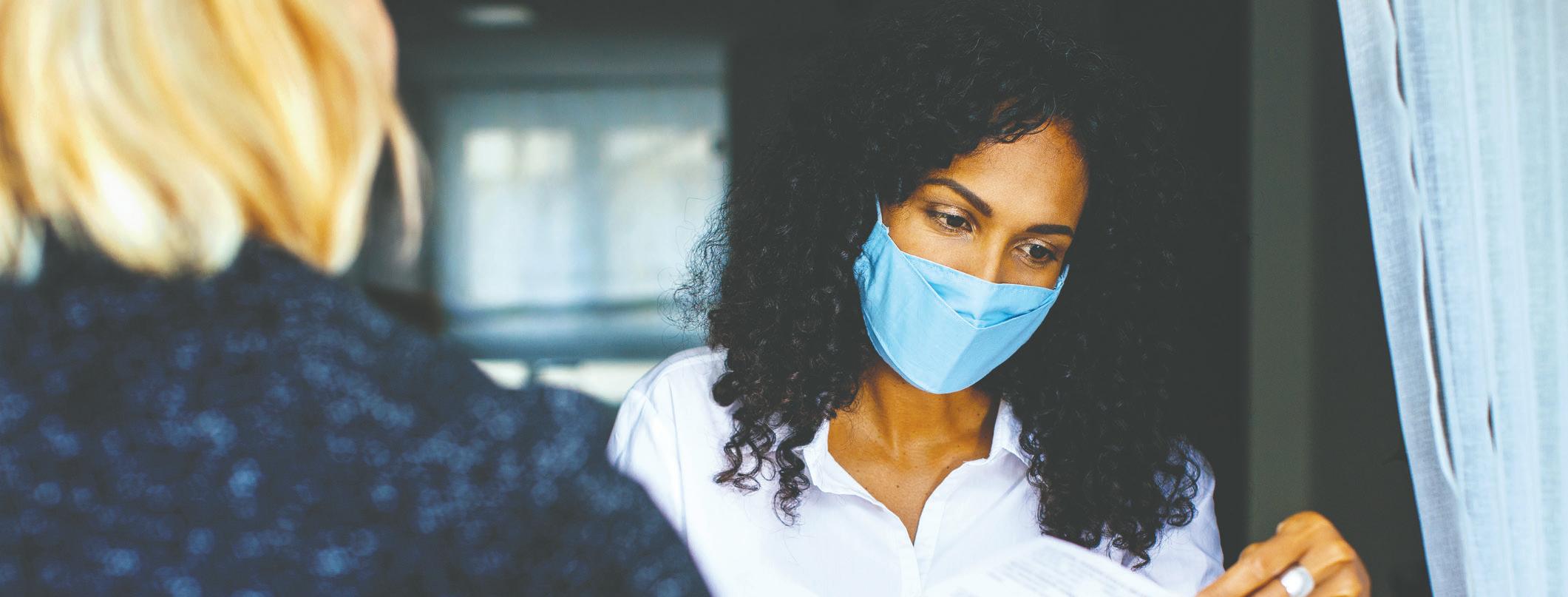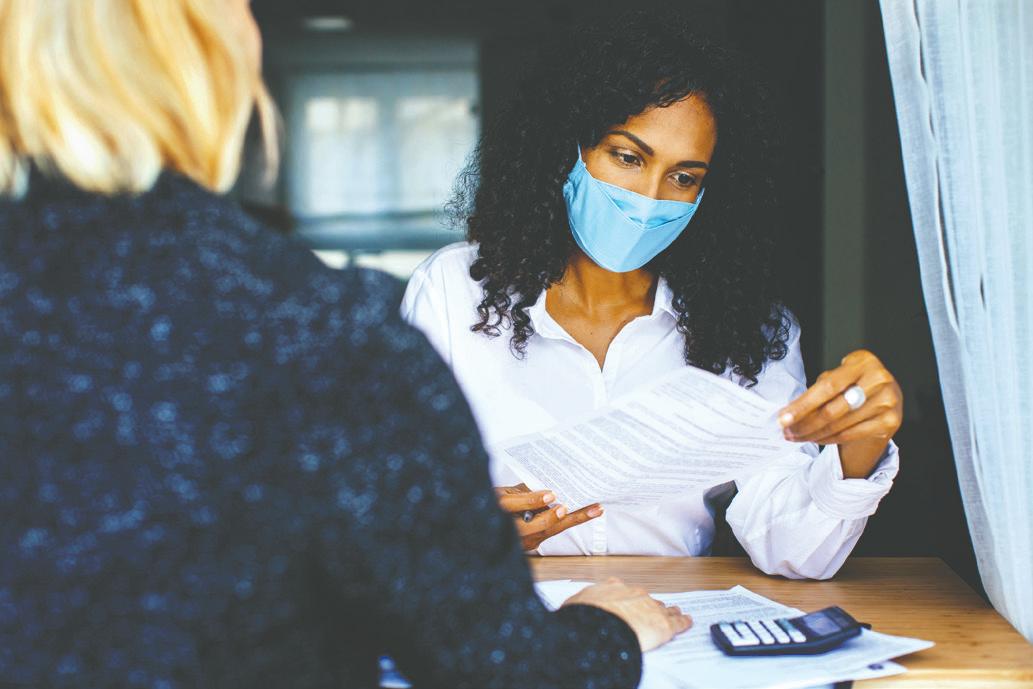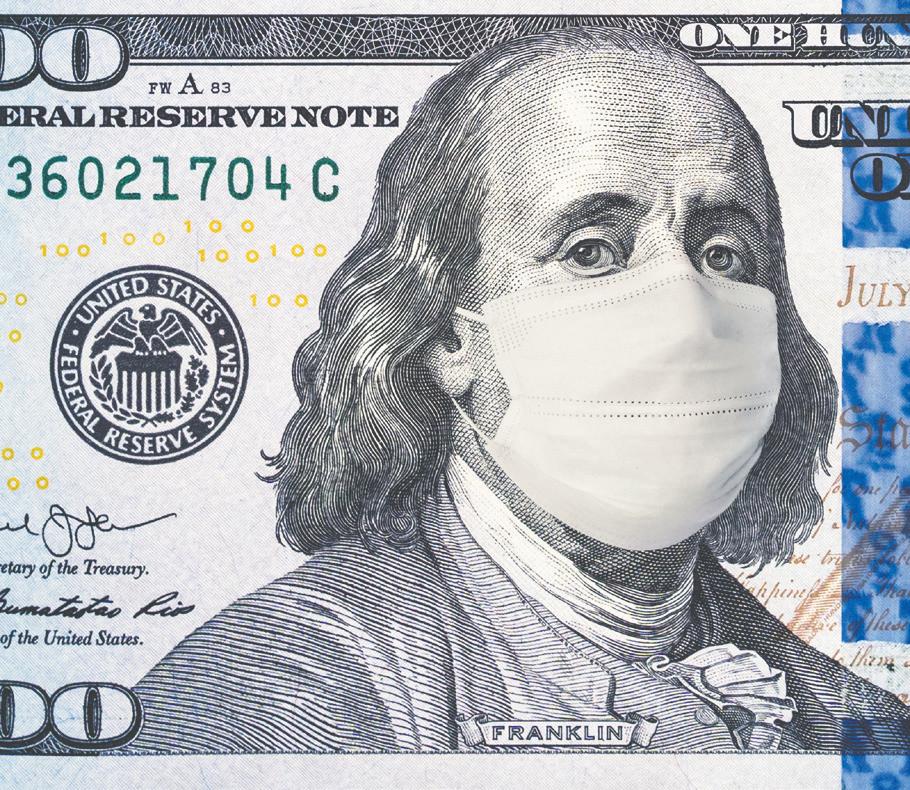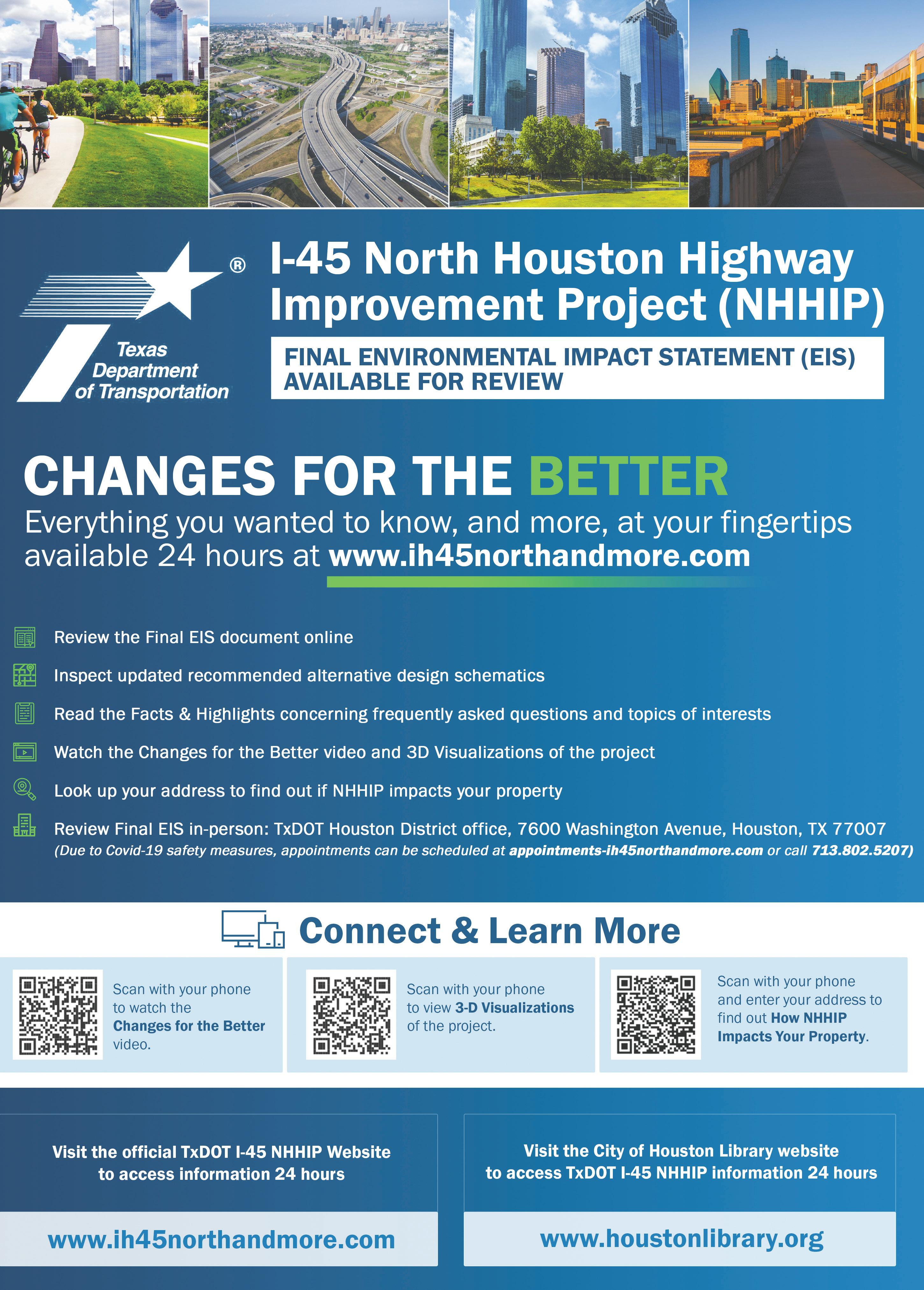












Roughly 21 million Americans have lost their job in the nearly eight weeks since the coronavirus pandemic began shutting down parts of the national economy. Nearly 400,000 of those now unemployed are in the Houston region, according to the latest government figures.

New weekly U.S. jobless claims are down from their peak in early April but remain well above historical averages, according to Partnership Senior Vice President of Research Patrick Jankowski. Jankowski gave an update on the economic picture in a webinar presentation for Partnership members on May 12. Watch the full presentation to the right.
• The national GDP fell by 4.8% in Q1. On average, economists anticipate the U.S. GDP will drop about 35% in Q2 before beginning to rebound in Q3 and Q4. But there is consensus that it will likely be the middle of 2021 before we regain the ground lost in the first half of this year. “We will finish 2020 with a smaller economy, smaller GDP, and fewer jobs,” Jankowski said.
• U.S. unemployment stood at 14.7% at the end of April, which translates to about 1 out of every 7 workers nationwide unemployed. Level of education has become big factor in joblessness during the current crisis: roughly 21% of those without a high school diploma are now unemployed compared with 8% of those with a bachelor’s degree.
• The hardest hit sector nationally has been the bar
and restaurant industry, accounting for roughly 6 million of the 21 million lost jobs.
• The mining sector, which includes oil and gas related jobs, reported losses totaling 57,000 jobs through the middle of April, but Jankowski said to expect that to jump significantly in the next reporting period.
• The U.S. Purchasing Manager’s Index, a barometer of economic activity derived from surveys of private sector companies, fell to 41.5 in April. Readings below 50 indicate economic contraction. The Houston PMI has fallen to 34.6 its lowest point since tracking began.
• Looking at manufacturing statewide, a recent survey by the Dallas Fed found that production was down for 64% of respondents while new orders were down for 72% and shipments down for 63%
• In Texas’ services sector, revenue was down 73% in
April compared with April 2019, employment was down 39% and hours worked down 56%
• On the residential real estate front, average listing prices were down just 0.6% in Houston in April compared with April 2019. Active listings are down 6.1% and new listings are off 27% year-over-year.
• Air travel has taken a big hit. The latest Houston figures available show March traffic fell to 2.2 million passengers, down from 5.2 million in March 2019. The figure is expected to plummet further when the April data is released in a few weeks. Nationally, TSA screenings have fallen from a daily average of 2.5 million passengers to around 200,000
• Sales tax collections for the City of Houston were down roughly 10% in March compared with March 2019. That figure will also drop further when April data is released.
• The Partnership has conducted its Business Barometer survey for the last five weeks. The latest results indicate 28% of businesses believe their situation is improving, up from 23% a week earlier.
• Asked what elements of their business they might reassess in response to their COVID-19 experience, the top three answers among respondents were: telecommuting practices (61%), technology needs (36%) and their relationship with customers (35%)
Get details on reopening plans via the Houston Work Safe Program. Read the latest Business Barometer. Visit the Partnership’s COVID-19 Resource page for updates, guidance for employers and more information.
Source: Greater Houston Partnership
With millions of people nationwide filing for unemployment since the start of the COVID-19 pandemic, many individuals and families across the country are suddenly finding themselves without health insurance at a precarious time. Fortunately, new options may be able to help those on tight budgets.

“The sudden and unexpected loss of health insurance only compounds the stress caused by job loss amidst this unprecedented economic and public health crisis. However, unemployed individuals have more options for affordable health insurance than they did during past economic recessions thanks to provisions in the Affordable Care Act, along with actions recently taken by Congress and some states,” says American Medical Association (AMA) president, Patrice A. Harris, M.D.
Whether you recently lost your jobbased health insurance or were uninsured before COVID-19 struck, the AMA, a long-time advocate for health insurance
coverage for all Americans, is highlighting the following options:
• Affordable Care Act (ACA) Marketplaces: Family and individual health plans can be bought in the health insurance marketplaces created by the ACA. Losing a job is a qualifying life event that allows unemployed individuals up to 60 days to enroll in a marketplace health plan before the close of a special enrollment period. Due to the COVID-19 pandemic, certain states have reopened enrollment periods when all consumers -- not only those who have experienced a job loss -- can enroll in marketplace health plans and potentially qualify for financial assistance to purchase these plans based on their income.
Subsidies available to eligible individuals through the health insurance marketplaces can help with premiums and out-of-pocket costs, making coverage more affordable. The Kaiser Family Foundation can help calculate an estimate of premiums and subsidies based on an individual’s income, age and family
size. It will also estimate an individual’s eligibility for Medicaid.
• Medicaid: While each state’s program has unique attributes for coverage, Medicaid can offer no- or low-cost coverage for those with the lowest incomes with limited cost-sharing requirements. Unlike the ACA marketplaces, there is no defined open enrollment period for Medicaid, and eligible people can sign up at any time. State eligibility requirements and income qualifications vary by state. Every state covers low-income children, pregnant women and people with disabilities, while 36 states and the District of Columbia
have expanded Medicaid coverage so that adults with income up to 138 percent of the federal poverty level can qualify.
• Beware Short-Term Plans: The AMA cautions patients to avoid short-term limited duration plans whenever possible, especially during this pandemic. Short-term plans are designed to fill temporary gaps in health insurance when comprehensive coverage may not be an option. But it is important to understand that these plans offer very limited benefits and do not usually cover COVID-19 testing and treatment, preexisting medical conditions, mental health services, prescription drugs, and preventative and wellness care.
“Avoiding gaps in coverage should be a top priority for anyone who has recently lost their health insurance,” says Harris. “The COVID-19 pandemic has highlighted the importance of having meaningful health insurance coverage.”
Source: (StatePoint)
